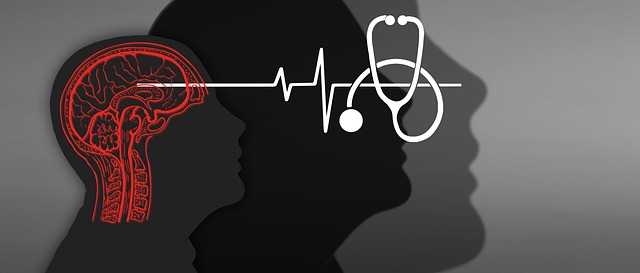Risk assessment is vital in therapy for both young adults and first responders, addressing unique challenges like academic pressures, identity struggles, and mindfulness for stress management. For first responders, specific harm minimization plans targeting trauma, anxiety, and depression are crucial, improving crisis response and long-term mental health. A multi-faceted approach including mindfulness meditation empowers young adults to manage adversity, while the Mental Wellness Podcast Series Production offers accessible support.
Risk assessment and harm minimization planning are vital components in supporting young adults, especially those with complex needs. This article explores the critical role of risk assessment in young adult therapy, focusing on its relevance and application. We delve into developing comprehensive harm minimization plans tailored for first responders, offering strategies to navigate challenging situations effectively. By understanding these processes, professionals can enhance safety measures and foster positive outcomes for young adults seeking therapy, particularly within the context of first responder support.
- Understanding Risk Assessment and Its Relevance to Young Adult Therapy
- Developing Harm Minimization Plans for First Responders: A Comprehensive Approach
- Implementing Effective Strategies: Supporting Young Adults Through Challenging Situations
Understanding Risk Assessment and Its Relevance to Young Adult Therapy

Risk assessment is a foundational component in therapy, particularly when catering to young adults and first responders. It involves meticulously evaluating potential hazards and their likelihood, enabling mental health professionals to implement targeted interventions. For young adult therapy, this means creating a safe and supportive environment while acknowledging the unique challenges they face, such as academic pressures, identity formation, and social expectations. A comprehensive risk assessment helps therapists identify at-risk behaviors, emotional vulnerabilities, or traumatic experiences that may require specialized attention.
For first responders, who often experience high-stress situations, risk assessment goes beyond psychological evaluations to include physical wellness checks. Mindfulness meditation and communication strategies can be integral parts of harm minimization planning. Therapists can guide clients in managing stress through mindfulness practices, fostering open dialogue using effective communication techniques, and providing tools to navigate emotional challenges. By integrating these approaches, mental health professionals can effectively mitigate risks, promote resilience, and enhance the overall therapeutic experience for young adults and first responders.
Developing Harm Minimization Plans for First Responders: A Comprehensive Approach

Developing harm minimization plans for first responders involves a comprehensive approach tailored to address unique challenges faced by these individuals. Therapy for young adults first responders is increasingly recognized as a vital component of their well-being, given the high-stress nature of their roles. This includes effective crisis intervention guidance and stress reduction methods designed to enhance emotional regulation.
Comprehensive plans should incorporate strategies that support first responders in managing trauma, anxiety, and depression. By prioritizing emotional regulation, these plans enable first responders to effectively cope with the demanding aspects of their jobs. The implementation of such measures not only ensures their long-term mental health but also improves their ability to provide compassionate care to others in crisis situations.
Implementing Effective Strategies: Supporting Young Adults Through Challenging Situations

Implementing effective strategies for risk assessment and harm minimization is crucial when supporting young adults navigating challenging situations. This involves a multi-faceted approach where therapy for young adults plays a pivotal role. First responders, equipped with specialized training in mental health education programs design, can intervene early to prevent escalation. By integrating mindfulness meditation techniques into these interventions, professionals foster resilience and coping mechanisms, empowering young adults to manage stress and adversity healthily.
The Mental Wellness Podcast Series Production offers an additional avenue for enhancing support. These platforms provide accessible resources, sharing stories of recovery and offering practical tips for maintaining mental wellness. This combines with face-to-face therapy sessions, creating a comprehensive safety net that ensures young adults feel supported and equipped to overcome challenges, promoting their overall well-being.
Risk assessment and harm minimization planning are indispensable tools in therapy, especially when catering to young adults and first responders. By understanding the inherent risks and developing comprehensive strategies, therapists can effectively support their clients through challenging situations. This article has explored the importance of these practices, offering insights into how they can be tailored for the unique needs of young adults and those who serve as first responders. Through implementing these strategies, we can ensure better outcomes and provide the necessary guidance to navigate complex circumstances.









